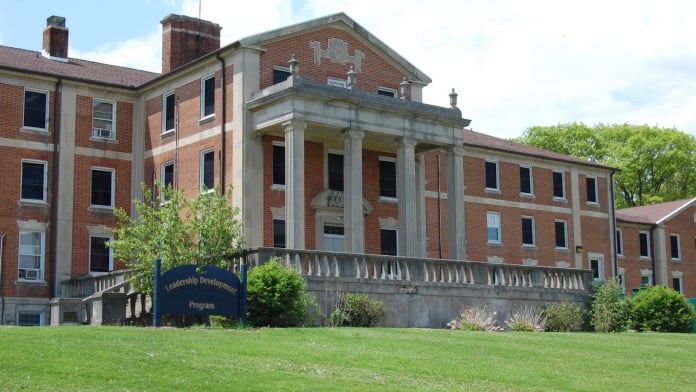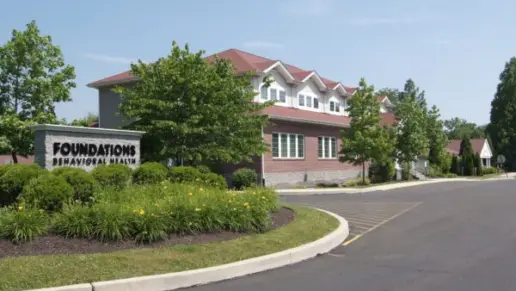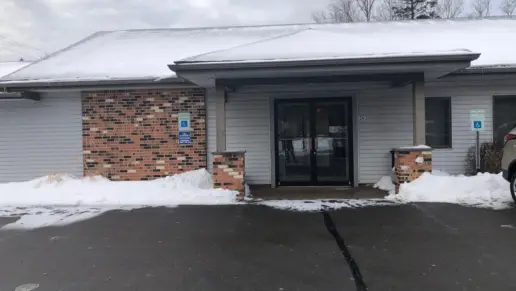About Abraxas Leadership Development Program
The Abraxas Leadership Development Program (LDP) is located in South Mountain, PA on the secluded grounds of the state owned, South Mountain Restoration Center.
Experience Challenge,
Experience Change,
Experience Success.
Since its inception in 1994, LDP has worked to instill leadership skills, promote accountability and develop competencies in youth. Guided by the Juvenile Justice System Enhancement Strategy (JJSES), LDP places emphasis on the following Youth Level of Service (YLS) domains: Personality/Behavior, Peer Relations, Education & Academic Skills, Leisure, Recreation & Community Engagement.
Abraxas Leadership Development Program specializes in Cognitive Behavioral Leadership Program, Leadership Experiential Adventure Program (L.E.A.P.), Aggression Replacement Training (ART), and Gender Specific Programming. They also offer additional services such as On-site licensed private school (elementary and secondary), Substance abuse education and prevention, and Family Conferencing.
L.E.A.P. provides experiential learning opportunities, adventure-based programming, community service, restitution,
vocational programming, and workforce development opportunities for youth.
Adventure Activities Include Team builders; Trust Building; Low Challenge Course; High Challenge Course; 600’ Zip Line; Rock Climbing; Rappelling; Canoeing; Back Packing; Historical Tour Trips; Overnight Camping; and Caving.
Vocational and Workforce Development Activities Include: Horticulture/Landscaping & Design; Indoor/Outdoor Maintenance; Microsoft certifications; Red Cross certifications; OSHA 10 certifications; Career planning and soft skill development.
All youth make a portfolio illustrating their accomplishments and skills developed while at the program.
At the Abraxas Leadership Development Program, The Sanctuary Model is utilized as a framework for treatment through the active creation of a trauma-informed community.
Latest Reviews
Rehab Score
Gallery

Location
Other Forms of Payment
Medicaid is a state based program that helps lower-income individuals and families pay for healthcare. Medicaid covers addiction treatment so those enrolled can use their coverage to pay for rehab. When a program accepts Medicaid the client often pays very little or nothing out of their own pocket.
Addiction Treatments
Levels of Care
Treatments
The goal of treatment for alcoholism is abstinence. Those with poor social support, poor motivation, or psychiatric disorders tend to relapse within a few years of treatment. For these people, success is measured by longer periods of abstinence, reduced use of alcohol, better health, and improved social functioning. Recovery and Maintenance are usually based on 12 step programs and AA meetings.
Drug rehab in Pennsylvania is devoted to the treatment of addiction. Levels of care, treatment methods, and settings differ, but the aim of each program is to end drug dependency and empower participants to achieve long-term recovery.
A combined mental health and substance abuse rehab has the staff and resources available to handle individuals with both mental health and substance abuse issues. It can be challenging to determine where a specific symptom stems from (a mental health issue or an issue related to substance abuse), so mental health and substance abuse professionals are helpful in detangling symptoms and keeping treatment on track.
Clinical Services
Cognitive Behavioral Therapy (CBT) is a therapy modality that focuses on the relationship between one's thoughts, feelings, and behaviors. It is used to establish and allow for healthy responses to thoughts and feelings (instead of unhealthy responses, like using drugs or alcohol). CBT has been proven effective for recovering addicts of all kinds, and is used to strengthen a patient's own self-awareness and ability to self-regulate. CBT allows individuals to monitor their own emotional state, become more adept at communicating with others, and manage stress without needing to engage in substance abuse.
Experiential therapy is a form of therapy in which clients are encouraged to surface and work through subconscious issues by engaging in real-time experiences. Experiential therapy departs from traditional talk therapy by involving the body, and having clients engage in activities, movements, and physical and emotional expression. This can involve role-play or using props (which can include other people). Experiential therapy can help people process trauma, memories, and emotion quickly, deeply, and in a lasting fashion, leading to substantial and impactful healing.
Group therapy is any therapeutic work that happens in a group (not one-on-one). There are a number of different group therapy modalities, including support groups, experiential therapy, psycho-education, and more. Group therapy involves treatment as well as processing interaction between group members.
In individual therapy, a patient meets one-on-one with a trained psychologist or counselor. Therapy is a pivotal part of effective substance abuse treatment, as it often covers root causes of addiction, including challenges faced by the patient in their social, family, and work/school life.
Life skills trainings involve all the skills a person must have in order to function successfully in the world. These include time management, career guidance, money management, and effective communication. Truly successful addiction recovery is based on the ability to not only live substance-free, but to thrive. Life skills teaches the practical necessities of functioning in society, which sets clients up for success in life, and therefore sobriety.
Recreational therapy (aka therapeutic recreation) uses creative and fun activities to help with addiction recovery. Recreational therapists lead patients in entertaining and engaging activities like sports or games; art (drawing, painting, sculpture); drama, music, and dance; and/or community outings (field trips) to improve patients' physical, social, and emotional well-being.
Trauma therapy addresses traumatic incidents from a client's past that are likely affecting their present-day experience. Trauma is often one of the primary triggers and potential causes of addiction, and can stem from child sexual abuse, domestic violence, having a parent with a mental illness, losing one or both parents at a young age, teenage or adult sexual assault, or any number of other factors. The purpose of trauma therapy is to allow a patient to process trauma and move through and past it, with the help of trained and compassionate mental health professionals.
Amenities
-
Private Setting
-
Wifi
-
Hiking
Contact Information
#10058 South Mountain Road
Building # 6, PO Box 354
South Mountain, PA 17261


